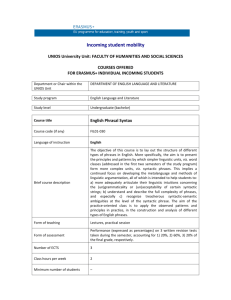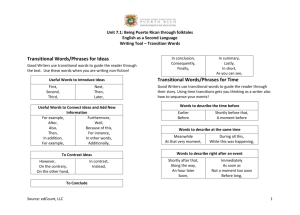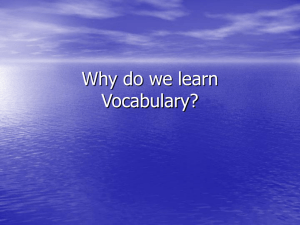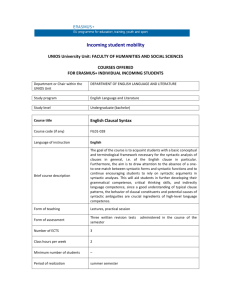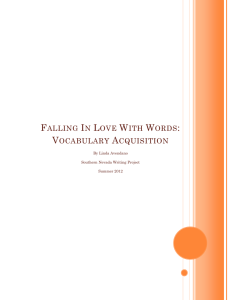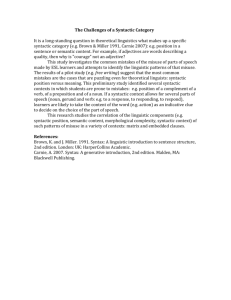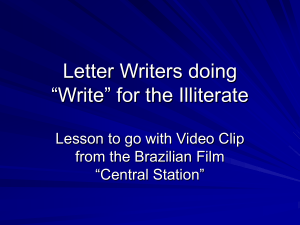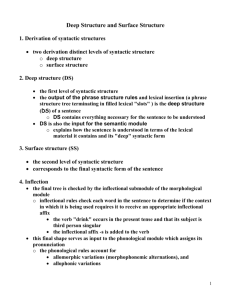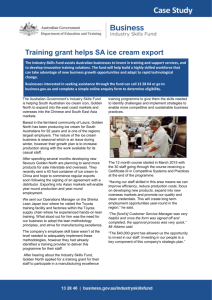Minilesson 9: TNReady Writing Rubric Language
advertisement
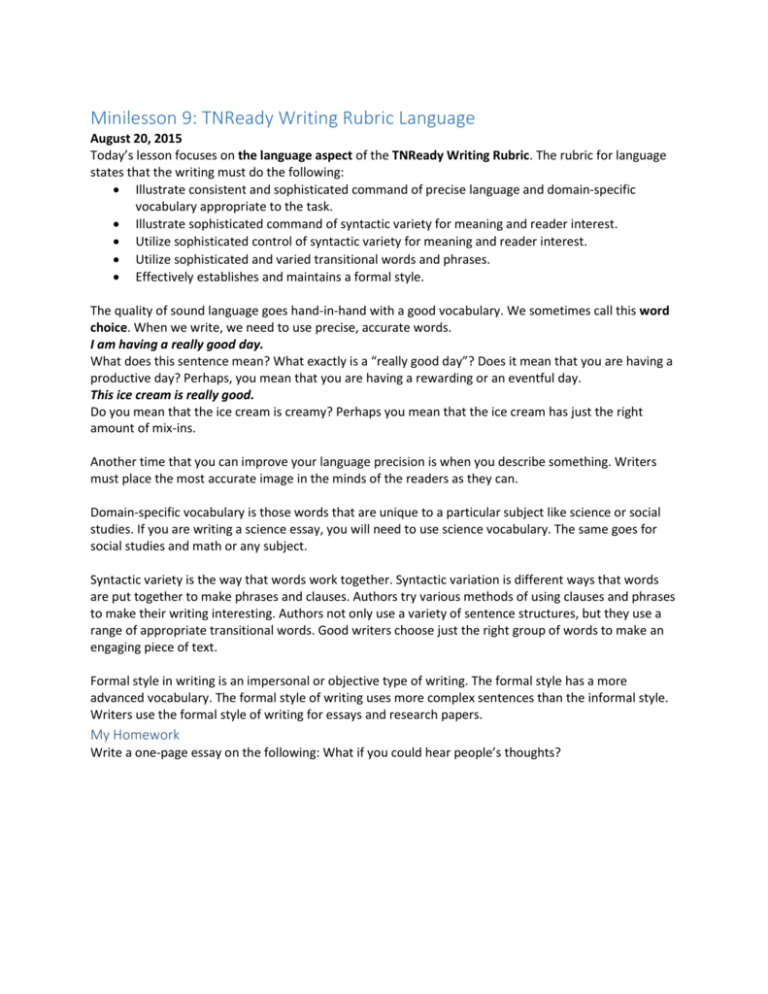
Minilesson 9: TNReady Writing Rubric Language August 20, 2015 Today’s lesson focuses on the language aspect of the TNReady Writing Rubric. The rubric for language states that the writing must do the following: Illustrate consistent and sophisticated command of precise language and domain-specific vocabulary appropriate to the task. Illustrate sophisticated command of syntactic variety for meaning and reader interest. Utilize sophisticated control of syntactic variety for meaning and reader interest. Utilize sophisticated and varied transitional words and phrases. Effectively establishes and maintains a formal style. The quality of sound language goes hand-in-hand with a good vocabulary. We sometimes call this word choice. When we write, we need to use precise, accurate words. I am having a really good day. What does this sentence mean? What exactly is a “really good day”? Does it mean that you are having a productive day? Perhaps, you mean that you are having a rewarding or an eventful day. This ice cream is really good. Do you mean that the ice cream is creamy? Perhaps you mean that the ice cream has just the right amount of mix-ins. Another time that you can improve your language precision is when you describe something. Writers must place the most accurate image in the minds of the readers as they can. Domain-specific vocabulary is those words that are unique to a particular subject like science or social studies. If you are writing a science essay, you will need to use science vocabulary. The same goes for social studies and math or any subject. Syntactic variety is the way that words work together. Syntactic variation is different ways that words are put together to make phrases and clauses. Authors try various methods of using clauses and phrases to make their writing interesting. Authors not only use a variety of sentence structures, but they use a range of appropriate transitional words. Good writers choose just the right group of words to make an engaging piece of text. Formal style in writing is an impersonal or objective type of writing. The formal style has a more advanced vocabulary. The formal style of writing uses more complex sentences than the informal style. Writers use the formal style of writing for essays and research papers. My Homework Write a one-page essay on the following: What if you could hear people’s thoughts?
